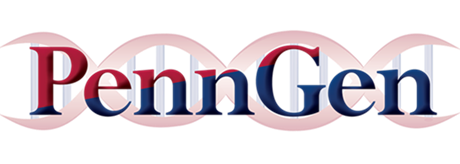Facial dysmorphism apparent at birth, characterized by a rounded, rostro-caudally flattened head, periorbital alopecia, small size, and coarse hair coat. If untreated, clinical signs include failure to thrive, dwarfism with disproportionately stunted long bone growth, facial dysmorphism, small ears, constipation (megacolon), markedly delayed development, dull mentation, hypothermia, dry or oily seborrhea, and retained deciduous teeth. May be prone to eosinophilic and other secondary dermatoses. Kittens may be stillborn or die neonatally. Treatment should be initiated as soon as possible; the earlier the better the outcome. If left untreated, affected cats may die shortly after birth or any time later in life.
Greatly enlarged, lobulated, diffuse purple to brown thyroid gland with prominent isthmus, follicular epithelial hyperplasia.

